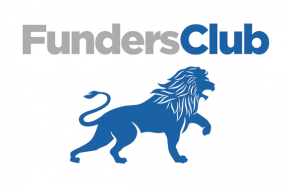-
Tableau Software Ups IPO Amount from $150M to $215M
 In April we reported that the Tableau Software IPO would be for $150M, but the latest regulatory filings show the company could raise quite a bit more, with the top of the range set at $215M.The Seattle-based company is profitable, earning a net income of $1.4 million in 2012 on revenues of $127.7 million.
In April we reported that the Tableau Software IPO would be for $150M, but the latest regulatory filings show the company could raise quite a bit more, with the top of the range set at $215M.The Seattle-based company is profitable, earning a net income of $1.4 million in 2012 on revenues of $127.7 million.Check out this visualization of post-IPO success (created using Tableau of course) depending on whether or not the company was profitable going into the public market:
-
Funders Club Announces It Will Take 20% Carry on Future Investments
 FundersClub, the first online venture capital firm recognized by the SEC, announced in an email today that it will now take the industry standard 20% carried interest on future funds formed to invest in startups on its platform for accredited investors. The announcement comes just over a month after the Securities and Exchange Commission issued Funders Club a no action letter, allowing them to operate as the first online venture capital firm in history.
FundersClub, the first online venture capital firm recognized by the SEC, announced in an email today that it will now take the industry standard 20% carried interest on future funds formed to invest in startups on its platform for accredited investors. The announcement comes just over a month after the Securities and Exchange Commission issued Funders Club a no action letter, allowing them to operate as the first online venture capital firm in history.FundersClub only receives carry, which is a % of proceeds following some liquidity event, after 100% of the originally invested funds are returned to investors, less a 10% administrative fee on invested funds to cover 3rd party expenses such as legal, banking and accounting. Unused admin fees are also returned to investors.
Read the full email here, or view it on Scribd.
-
Clustrix – #5 on YC Startup Index – Raises $16.5M Series C
 This morning Clustrix announced they have raised $16.5M in a Series C round from Sequoia Capital, U.S. Venture Partners, ATA Ventures and Don Listwin. They are one of the earliest Y Combinator companies, founded in 2005 with nearly $47 million raised to date. Clustrix was ranked #5 on our Y Combinator Index for April.
This morning Clustrix announced they have raised $16.5M in a Series C round from Sequoia Capital, U.S. Venture Partners, ATA Ventures and Don Listwin. They are one of the earliest Y Combinator companies, founded in 2005 with nearly $47 million raised to date. Clustrix was ranked #5 on our Y Combinator Index for April.The Benefits of MySQL Without the Scaling Limitations
 Clustrix scales MySQL databases as engineering operations needs increase, simply by adding more nodes on Amazon Web Services. The company solves parallel processing challenges associated with applications that have a large quantity of data transactions, and is also used by dev ops to get realtime reporting on database performance an automatically scale up our down the number of nodes in use.
Clustrix scales MySQL databases as engineering operations needs increase, simply by adding more nodes on Amazon Web Services. The company solves parallel processing challenges associated with applications that have a large quantity of data transactions, and is also used by dev ops to get realtime reporting on database performance an automatically scale up our down the number of nodes in use.Before Clustrix an entirely different kind of datastore, such as MongoDB, would be used. This requires developers to split up their data across multiple servers and use a map reduce algorithm in order to query across all the data. However, developers using Clustrix save time because they can use their existing application code and MySQL connectors and don’t have to deal with sharding.
Possible IPO In Sight?
A PEHub article covering the announcement says:
CEO Robin Purohit told peHUB that the company will likely raise more funding in the next year to bring it to cash-flow positive. “And then we’ll see where the public markets are,†he said.
We’ll certainly keep an eye out for the next REG D to cross the SEC wire from Clustrix, and keep you posted on their monthly momentum and overall progress in the Startup Index.

Photo Credit: Clustrix Facebook page
-
New Fund Formed to Hunt Zombie VCs & Private Equity Funds
These zombie stories just won’t die.
Last week Kirchner Group and Crestline Partners announced a joint effort to give limited partners (LPs) liquidity:
There is an estimated $100 billion in private equity assets managed by funds past their investment periods, according to industry estimates. Many of these so-called “zombie funds†have serious issues of alignment between the general partner and limited partners. As a result, an increasing number of institutional investors are looking for creative and effective ways to restructure these funds and rationalize their private equity portfolios.
Meet the Bobs of Private Equity
The announcement goes on to explain its areas of focus, which include supporting or replacing general partners, managing or even restructuring troubled funds, providing portfolio follow-on capital and even company level follow-on investment, and finding other opportunities for exits to give LPs liquidity and maximize value.
According to PEhub Kirchner Group has already has some success with this model:
Kirchner Group has made a name for itself as a specialist in zombie deals. It took over management of the Brantley Partners V LP from Brantley Partners and renamed it Emerald Partners V LP fund, which it continues to run.
What’s In Store for Venture Capital?
VC investing is a subcategory of private equity, accounting for $30B invested by venture capitalists in portfolio companies in 2012, according to the North American Venture Capital Association. This is roughly 10% of the private equity industry’s annual global investment, so I suspect the lowest hanging fruit for this kind of restructuring are among huge private equity firms but I certainly wouldn’t rule out some restructuring of larger zombie VC funds.
We are at the beginning of an industry transformation for traditional venture capital that has been a long time coming, and the chronicling of this shift began with the May 2012 report from the Kauffman Foundation, one of the largest investors in venture capital firms and an entrepreneurship think tank, on venture capital as an asset class. According to their findings:
Venture capital (VC) has delivered poor returns for more than a decade. VC returns haven’t significantly outperformed the public market since the late 1990s, and, since 1997, less cash has been returned to investors than has been invested in VC. Speculation among industry insiders is that the VC model is broken, despite occasional high-profile successes like Groupon, Zynga, LinkedIn, and Facebook in recent years.
You can read the full report here.
We will be watching to see which LPs take this route to liquidity for their venture capital portfolio, and looking to determine what those restructuring deals and partnership changes could mean for the entrepreneurs within their portfolio companies.
-
Startup Index: Y Combinator Companies Have More Than 2x the Momentum of 500 Startups, 3x Techstars
How to Read the Startup Momentum Index
Momentum measures a quantity of motion, measured as a product of its mass and velocity. In case we want to measure the momentum of a startup (the “bodyâ€) where mass is the company’s share of web traffic (as measured by Alexa rank) and velocity is the growth trajectory of several different signals (social, inbound links, page rank, etc). It is weighted toward sustained growth, versus small spurts of growth from press coverage or a burst of paid traffic or Twitter/Facebook followers. Larger companies (by traffic) who see a decline in growth across these signals will be the hardest hit, so the worst place to be on this list is in the approaching 0 momentum points.Earlier this week we released the April 2013 Startup Index, which tracks over 1,000 companies in the investor portfolios we’ve indexed with at least 4 weeks of data. Now let’s take a look at the 3 most talked about early stage investment programs and compare the momentum of their portfolio companies.
While the percentage of active companies in each portfolios differs by just a few percentage points, the total momentum points vary widely. For example the top 500 Startups company Virool (which is was also part of YC S12) has 27.69 momentum points in April, but in the YC portfolio there are 10 companies which have more momentum than this. Similarly the top TechStars company Digital Ocean has 18 momentum points, but 500 startups has 5 companies with more momentum in this and Y Combinator has 17 that rank higher.
On average Y Combinator companies had 2.4x greater momentum than 500 Startups and 3.1x greater momentum than Techstars companies in April.These differences seem to line up with differing investment philosophies. While Paul Graham of Y Combinator is focused on “Black Swan Farming” for the one home run company in each batch, Dave McClure of 500 Startups is building a portfolio around companies hitting solid singles and doubles, while Techstars takes a geographically diversified approach. As we continue to collect data it will be interesting to see if greater momentum results in more exits.
April Startup Moment Index: Y Combinator, 500 Startups & Tech Stars
Full Disclosure: both Y Combinator and 500 Startups are investors in Referly, where I am founder and CEO.
Photo credit: New York Daily News
-
Uber Takes on Lyft with Aggressive “Shave the Stache” Mobile Billboard
 This morning at brunch Kevin remarked to me that he’d been seeing a lot more Lyft cars (a donation-based private P2P taxi service) around lately – so I was surprised at the coincidence when just an hour later the driver of the locally famous Disco Lyft car shared an this image (above) of a mobile ad billboard for competing car service Uber with the comment:
This morning at brunch Kevin remarked to me that he’d been seeing a lot more Lyft cars (a donation-based private P2P taxi service) around lately – so I was surprised at the coincidence when just an hour later the driver of the locally famous Disco Lyft car shared an this image (above) of a mobile ad billboard for competing car service Uber with the comment:I’m proud to be a part of a community with a bit more tact in their marketing and recruiting.
#lyftLOVE
#UBERfailRead the full Facebook thread here
What do you think – is Uber taking things over the top, or a clever tactic? It sounds like Lyft must be doing something well if they’re raising the hackles of a much more established, albeit startup, car service company. At first I actually thought it was an ad for Lyft before I read the copy (and who really has time to read ad copy anyway). The biggest problem with shaving a mustache? It grows back.
Photo Credit: Matthew Earnest
-
New York Startup Fliqq Raises $430K for Realtime Social Video
 Fliqq revealed in a regulatory filing that they have raised a seed round of equity funding. It looks like the company was in startup alley (basically the expo hall) at TechCrunch Disrupt NYC last week and, according to Nibletz.com, they are currently working with celebrities like Wyclef Jean to help gain visibility and new users.
Fliqq revealed in a regulatory filing that they have raised a seed round of equity funding. It looks like the company was in startup alley (basically the expo hall) at TechCrunch Disrupt NYC last week and, according to Nibletz.com, they are currently working with celebrities like Wyclef Jean to help gain visibility and new users.The service let’s you co-watch videos with friends and layers in additional social feature to enhance the experience. This is how they explain the service on their website:
With fliqq, you can watch videos together in real time and chat about them with your friends. You can laugh together, groan together and talk smack together as you watch rather than waiting around for a response to a post.
Content is king and on fliqq we’ve made discovering and sharing new videos with your friends an easy and natural process. Anyone can form a group and “fliqq†to new videos that will synchronize on everyone’s computer, and anyone in the group can “fliqq†to new content themselves.
Now, you can socialize with your friends and view content in real time with them, even if you are on different continents. There’s nothing to download – just login with Facebook to fliqq, laugh and share.
The company is cofounded by Christian Bendixen, Matthew Knysz, and Daniel Starin.
Video credit: Nibletz
-
7 Startup Funding Headlines I Didn’t Have Time to Write Today
 The Creators of PerkyJerky – Beef Jerky with caffeine in it – Raise $2.3M
The Creators of PerkyJerky – Beef Jerky with caffeine in it – Raise $2.3M
Source: Regulatory Filing
More: Company WebsiteWestView Capital Partners has filed its intent to raise a $430M 3rd fund.
Source: Regulatory FilingAtlanta-based GetOne raised a seed round of $515K for their digital loyalty rewards startup
Source: Regulatory FilingScale Venture Partners has filed its intent to raise a $300M 4th fund and lists Stacey Bishop, Kate Mitchell, Rory O’Driscoll, and Rob Theis as General Partners
Source: Regulatory FilingTheir previous fund of $250M closed in February 2010 and there are 4 GPs listed on the previous fund who are not listed on the new filing: Louis Bock, Sharon Weinbar, Mark Brooks, Jim Jones (who is no longer listed on the company’s team page)
Social Recruiting Startup TalentBin Raised $246K Using FundersClub
Source: Regulatory FilingDFJ Growth Fund has filed its intent to raise a $350M fund
The 4 GPs remain unchanged from the previous fund.
Source: regulatory filing.ResearchGate, the Social Network for Scientists, Raises $20M lead by Founder’s Fund partners Luke Nosek (PayPal) and including Benchmark Capital, Accel Partners, Michael Birch (Bebo), and David Sacks (Yammer)
Source: Regulatory Filing and Company Announcement
-
Judge and Prepare to Be Judged
Much of the feel good media coverage of startups today is so superficial and manufactured it can hardly be called news. Investigative journalism covering tech startups is extremely rare, and when it does happen it’s written in a snarky fashion full of speculation, rather than research and data.
That’s why for the past month I’ve been indexing startups and tracking their momentum using dozen of signals from public data sets. The analysis reveals up-and-coming companies who deserve more attention, and also highlights companies that are not growing or have headed into decline.
 Go to any bar, any coffee shop, any coworking space. They’re talking about which startups are going to make it and which are going to die. Investors, employees, friends, family… if you’re working at or running a startup you know people are already piecing together an impression of how your company is doing based on what you say, don’t say, do, tweet, blog, etc.
Go to any bar, any coffee shop, any coworking space. They’re talking about which startups are going to make it and which are going to die. Investors, employees, friends, family… if you’re working at or running a startup you know people are already piecing together an impression of how your company is doing based on what you say, don’t say, do, tweet, blog, etc. As incomplete as the picture may be, people pick up the signals you and your company are sending out into the world no matter how good you are at putting on The Show.
Delay is the Deadliest Form of Denial
Think your B2B startup shouldn’t be expected to ever have meaningful web traffic? Twilio is #13,158 in global web traffic and Zendesk is #650, so don’t even try that line on me. Companies that build brand awareness, regardless of their industry, are the ones who win. The success of your company is a function of your unit economics multiplied by your ability to get someone to pay you. Before they can pay you they have to know you exist. This is why the most successful B2B tech companies invest heavily in doing world class online marketing, and if you are competing with them you will eventually have to as well.
There are very few B2B SaaS startups that have business models enabling them to succeed with less than 100 customers (e.g. Palantir). Startups in the consumer space will need *at least* TENS OF MILLIONS of people to be aware of your products for you to ultimately succeed. Consumer startups need to achieve massive scale in order to monetize through advertising, or sell themselves to another company who will handle monetization for them (like Facebook).
Unsung Heroes
 What excites me most is uncovering companies that are doing really well but flying under the radar. So keep reading, and be among the first to know.
What excites me most is uncovering companies that are doing really well but flying under the radar. So keep reading, and be among the first to know.Let’s give them something to talk about.
-
April 2013 Startup Index: 1,183 Companies – 71% Are Growing
 Through the startups indexes I’ve been creating in the past month I’ve developed a database of over 1,000 companies with dozens of signals each. This list includes ALL the startups in my database, across all the portfolios that have been indexed so far, ranked by momentum. Of the 1,183 startups in the index 71% (844) exhibited positive growth in the month of April across the signals we are tracking.
Through the startups indexes I’ve been creating in the past month I’ve developed a database of over 1,000 companies with dozens of signals each. This list includes ALL the startups in my database, across all the portfolios that have been indexed so far, ranked by momentum. Of the 1,183 startups in the index 71% (844) exhibited positive growth in the month of April across the signals we are tracking.Why I’m Writing These Posts
Many commenters and friends have asked why I’m doing this and not working on my startup. In case it wasn’t obvious, this is our startup and these posts are our MVP. I’d like to publicly acknowledge the tremendous effort by my team that make this possible. Kevin Morrill, our CTO and cofounder, who has taken a process managed in dozens on unwieldly spreadsheets and a ridiculous number of browser tabs and automated it with code. Andy Sparks, our Technology Editor, has undertaken the incredible schlep work of hand building new indices and researching startups, cleaning, curating and organizing our data.
How to Read This List
Momentum measures a quantity of motion, measured as a product of its mass and velocity. In case we want to measure the momentum of a startup (the “body”) where mass is the company’s share of web traffic (as measured by Alexa rank) and velocity is the growth trajectory of several different signals. Unlike previous indexes growth trajectory is now heavily weighted toward sustained growth, versus small spurts of growth from press coverage or a burst of paid traffic or Twitter/Facebook followers.The Bigger They Come, the Harder They Fall
You will find companies in the top portion of the list that you’ve probably never heard of, and companies near the bottom who are big names you recognize right away. Because of this, you might be tempted to immediately discredit the entire index – but let’s walk through a few examples first so you can see what we are measuring. Since this measures momentum, the bigger the company the more it is impacted when it fails to grow.
#2 – Coinbase, a service for storing and selling Bitcoin e-currency, has been gaining a lot of momentum alongside the popularity of trading the online currency – averaging 11% growth week-over-week in web traffic by our estimates. This growth also shows in Coinbase’s social media following. They grew Facebook Likes 35% from 452 to 614 during April. On Twitter they grew from 1375 followers to 1876, a 36% growth rate. We’ll be watching to see if Coinbase can sustain this growth in May.

#1179 – StumbleUpon, the popular social content discovery service, appears just 6 positions from the bottom of the list and upon closer inspection we see this is because the mass of the company has declined as it dropped from 176 to 179 in Alexa rank during April. Based on our analysis this drop is representative of a loss of around 10,000 unique visitors per day, and a look at the companies Alexa graph reveals their traffic has been in steady decline for over a year.

Also of note in this list are some of the younger startups that have already shot to the top. YC Winter 13 companies such as Strikingly, Teespring and Thalmic Labs made an impressive showing.
Biggest Winners & Losers
Keep scrolling and you will find the entire list of startups, but for those of you who don’t like scrolling through 1000+ rows in a spreadsheet I’ve got the highlights for you.
20 Startup Who Gained the Most Momentum
- BuzzFeed
- News Blur
- Coinbase
- Dropbox
- Codecademy
- Disqus
- Rap Genius
- Weebly
- ROBLOX
- Priceonomics
- Strikingly
- Teespring
- Creative Market
- Aereo
- Virool
- BuildZoom
- Thalmic Labs
- Bitnami
- Perfect Audience
- Tapas Media
20 Startup Who Lost the Most Momentum
- ChirpMe
- Causes
- Payvment
- Udemy
- StumbleUpon
- Lockitron
- Svbtle
- Crowdbooster
- Grubwithus
- Kaleidoscope
- Oh Life
- SplashUp
- Tumult
- LaunchRock
- Ecomom
- FamilyLeaf
- Imgfave
- LeanMarket
- OpenX
- Iconfinder
The April 2013 Startup Index